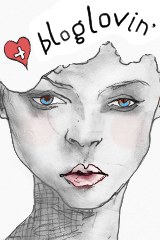Focus: The Irascibles / Gli Irascibili
0
 |
| Mark Rothko. Untitled (Blue, Yellow, Green on Red), 1954 |
Al Palazzo Reale di Milano, fino al 16 Febbraio, è possibile vedere Pollock e gli Irascibili. La scuola di New York.
Si tratta di un percorso alla scoperta dello stile artistico che seppe re-interpretare la tela come spazio per esprimere la libertà di pensiero e di azione dell'individuo e che ebbe grande influenza nella produzione artistica degli anni successivi e la cui forza non può ancora considerarsi conclusa. Le opere esposte fanno parte di quel gruppo di artisti definiti "Irascibili". Ma chi sono gli "Irascibili"?
The Royal Palace of Milan, until February 16, you can see Pollock and Irascibles. The New York school.
It is a journey to discover the artistic style that was able to re-interpret the canvas as a space to express the freedom of thought and action of the individual and which had great influence in the artistic production of the following years and the strength of which can not yet be considered ended. The works on display are part of the group of artists called "Irascible". But who are the "Irascible"?
 |
| Helen Frankenthaler. Blue Territory, 1955 |
Quel gruppo venne immortalato in una celebre fotografia di Nina Leen, pubblicata nel 1951 dalla rivista "Life", in cui si fecero ritrarre vestiti da banchieri.
Qui sotto la famosa foto che ritrae i protagonisti di quella vicenda ed esponenti dell'avanguardia americana.
In 1950, The Metropolitan Museum in New York organized an exhibition devoted to contemporary American. Excluded from the list of the artists invited to participate were the painters from the mid-30s were the exponents of Abstract Expressionism and who had experienced a new artistic language. The exclusion provoked a strong reaction from those artists, who sent a letter to the New York Times of dissent against the museum and its President, Ronald L. Redmond. The exponents of the most influential and signatories of the letter were Jackson Pollock, Willem de Kooning, Mark Rothko, Barnett Newman and Robert Motherwrll, defined by the Herald Tribune as "the Irascibles".
That group was immortalized in a famous photograph by Nina Leen, published in 1951 by "Life" magazine, which portray clothes made by bankers.
Below the famous photo that depicts the protagonists of that story and exponents of American.
Al centro e con sigaretta / center and with cigarette: Jackson Pollock.
Con lui / with him:Willem de Kooning, Mark Rothko, Barnett Newman e Robert Motherwell, Adolph Gottlieb, William Baziotes, James Brooks, Bradley Walker Tomlin, Jimmy Ernst, Ad Reinhardt, Richard Pousette-Dart, Theodoros Stamos, Clyfford Still.
Unica donna del gruppo / The only woman in the group: Hedda Sterne
 |
| la lettera / letter |
 |
| Jackson Pollock. Number 27, 1950 |
 |
| Robert Motherwell N.R.F.. Collage, Number 1, 1959 |
 |
| Hans Hofmann. Orchestral Dominance in Yellow, 1954 |
 |
| Barnett Newman. The Promise, 1949 |
 |
| Willem de Kooning. Landscape, Abstract, c. 1949 |
 |
| Adolph Gottlieb. The Crest, 1959 |
 |
| David Smith. Hudson River Landscape, 1951 |













.jpg)








